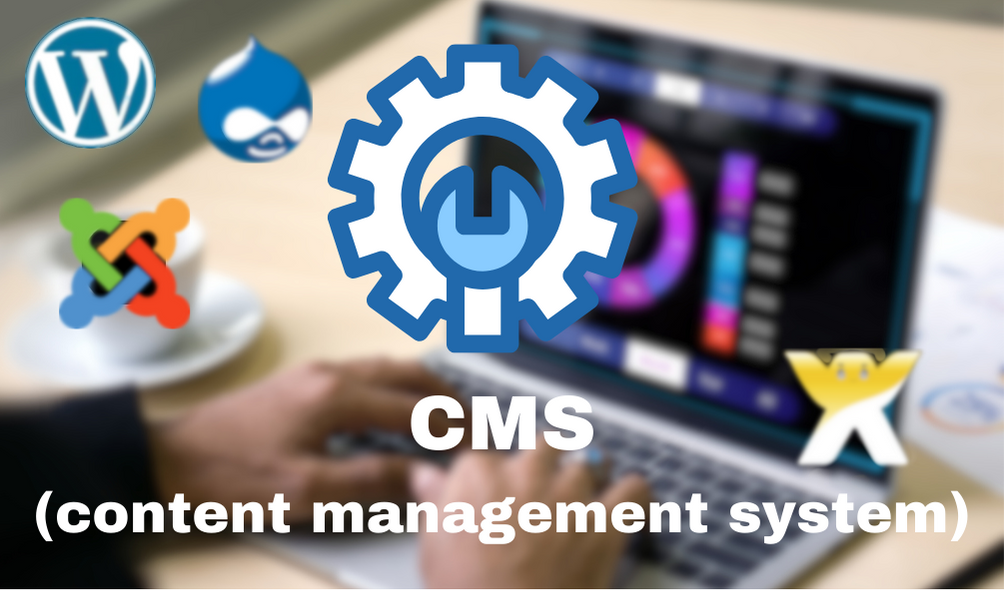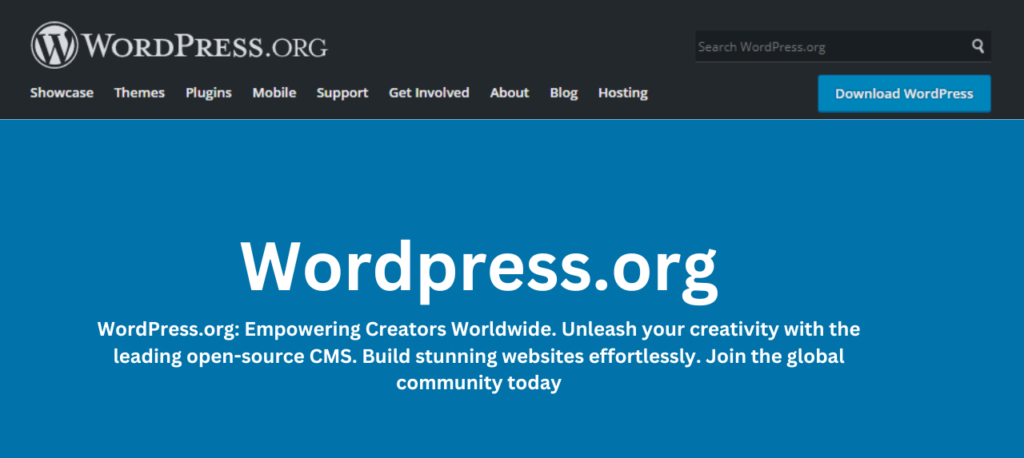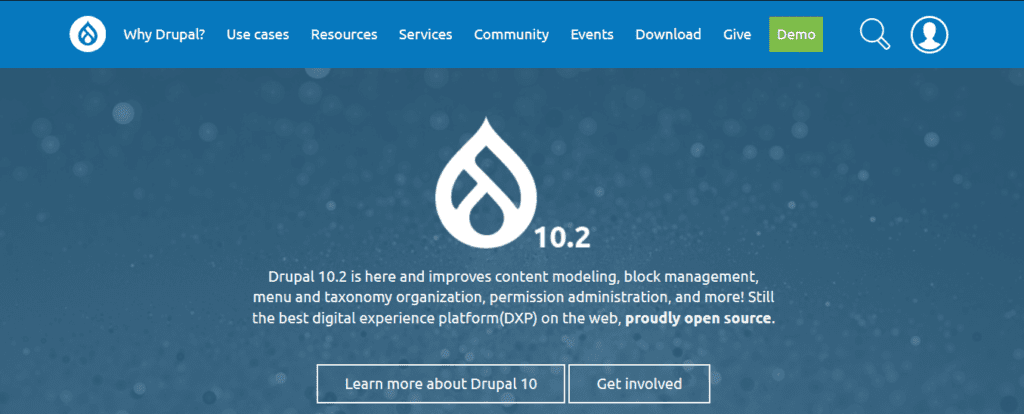A CMS (content management system) helps companies manage digital content. Whole brigades can use these systems to produce, edit, organize, and publish content. It is a single place to store content and provides automated processes for cooperative digital content operation and creation using erected-in ( or designed) workflows. Different boons and liabilities are handed to individualities grounded on places. Authors can post and save their work for illustration, but editors can modify and publish it. directors can do all these effects and entitle other people in the association authorization to authorise or revise content.

A CMS helps produce and manage websites and website content using minimum specialized outflow, so you can make better content rather than acting as a design or business director. By furnishing an easy and cost-effective result for a content operation, a CMS allows companies to manage and distribute their content without investing in a full-time content development platoon.
Types of CMS (content management systems)
A content management system( CMS) is software that helps druggies produce, manage, and modify content on a website without the need for specialized knowledge. There are different types of CMS, each suitable for specific use cases and scripts. Some of the common types of CMS are:
- Open-source CMS: A community of inventors maintains the software rather of a single company retaining it. Third-party inventors have access to the source law and can develop and ameliorate the software’s functionalities.
- Cloud CMS: A pre-built system accessible without having to download tackle or software. druggies can manage web content safely over the pall and have it fluently accessible from multiple biases.
- Personal CMS: comes with a license figure as it’s the legal property of a company, association, or existent that created it. The cost can be a one-time original payment, a yearly figure, or a periodic charge.
- Coupled CMS: This type of CMS offers a fully accessible back end that connects to and modifies a website’s database and publishes content to a styled front end2. An example of a coupled CMS is WordPress.
How Does a CMS Work?
A CMS is a software operation that helps users create and manage websites without coding. A CMS generally consists of two factors a content operation operation( CMA) and a content delivery operation( CDA).
The CMA is the user interface that allows users to add, edit, and cancel content, such as textbooks, images, videos, etc. The CDA is the backend that stores and delivers the content to the website using a service.
A CMS helps to make websites by furnishing druggies with features similar as:
- Templates and themes that allow users to design and customize the appearance of their websites. ]
- Plugins and extensions that add functionality and features to websites, such as forms, e-commerce, etc.
- Content editors enable users to produce and format content using a simple interface, similar to a WYSIWYG( what you see is what you get) editor.
- Content operation tools that allow druggies to organize, classify, and tag their content, as well as set warrants and workflows for different druggies and places.
- SEO tools that help druggies optimize their websites in Google search engines, similar to meta markers, sitemaps, analytics, etc.
Popular Content Management System
There are many popular CMS platforms available, and each CMS has specific features, benefits, and drawbacks. some of the most popular CMS Platforms are:
1. WordPress

WordPress is the most popular and most used CMS platform in the world. that power more than 40% of all websites on the internet. WordPress is an open-source software that is free to use and highly customizable. coder02 explains in full detail WordPress you can learn more about WordPress CMS.
2. Joomla

Joomla is also a popular open-source CMS (content management system) platform that’s used by millions of websites, including some well-known brands like Harvard University and Linux.
Joomla is more complex and harder to learn as compared with WordPress. Joomla offers hundreds of templates and extensions that allow druggies to produce different types of websites, similar to social networks, online magazines, and educational doors. Joomla is also known for its security, multilingual support, and important content management features.
3. Drupal

Drupal is one of the most important web content operation systems in the request. Large businesses and government realities like NASA, Tesla, Sony Music, and Nokia use it to manage their web content online.
Drupal features excellent runner cargo time and advanced security tools. It also comes with erected-in modules, allowing you to integrate your website with popular analytics tools, as well as marketing and eCommerce features.
4. Wix

Wix is a popular website builder that allows druggies to produce stunning websites using a drag-and-drop interface. Wix is a hosted result, which means users don’t need to install or maintain any software. Wix offers hundreds of templates and features that allow users to produce different types of websites, from particular and professional to creative and cultural. Wix is also known for its design flexibility, mobile optimization, and artificial design intelligence.
How to Choose the Right CMS?
To choose the right CMS for your needs, you should first define your website’s goals, audience, and budget. Then, you should compare different CMS platforms based on the following criteria:
- Price: CMS platforms vary in their pricing models, from free and open-source to paid and personal. You should consider not only the original cost of the CMS, but also the ongoing freights for hosting, conservation, security, updates, plugins, themes, and support. You should also factor in the cost of hiring developers if you need custom features or designs.
- Security: CMS platforms are often targeted by hackers and malicious actors, so you should choose a CMS that offers strong security features and regular updates. You should also follow best practices such as using strong passwords, enabling HTTPS, and backing up your data.
- Features: CMS platforms offer different features and functionalities, depending on your website’s requirements and goals. For illustration, some CMS platforms are more suitable for e-commerce, blogging, portfolio, or media websites. You should look for a CMS that offers the features you need, similar to SEO, analytics, social media integration, forms, dispatch marketing, etc. You should also check the availability and quality of plugins, extensions, or add-ons that can enhance your website’s functionality.
- Easy to use: CMS platforms vary in their user-friendly and literacy wind. You should choose a CMS that’s easy to use and intuitive for you and your platoon, especially if you aren’t veritably tech-extensive. You should also consider the attestation, tutorials, and community support available for the CMS platform.
- Performance: CMS platforms affect your website’s speed, reliability, and responsiveness. You should choose a CMS that offers fast loading times, high uptime, and mobile-friendliness. You should also consider the hosting options, caching mechanisms, and optimization tools available for the CMS platform.
What Kinds of Websites are built using CMS?
Most CMSs are pretty flexible on days. While some concentrate on a specific use – such as Magento and eCommerce – the utmost of the popular content operation systems can be used to create essentially any type of website.
There are some types of websites that you can build using any CMS
- Business websites.
- Blogs.
- E-commerce websites.
- Forums.
- Social Networks.
- Portfolio’s websites.
- Static Websites.
Conclusion
A CMS is a software operation that simplifies the process of creating and managing websites. With a CMS, druggies can customize the design and content of their websites without demanding to law them from scraping. A CMS consists of two core factors a content operation ( CMA) that allows druggies to produce and edit content, and a content delivery operation( CDA) that stores and displays the content to the callers. There are colourful types of CMS platforms available, each with its features and benefits. druggies should consider their requirements and preferences when choosing the right CMS for their website. A CMS can help druggies make and maintain a professional and engaging online presence.
FAQ
1. What is a CMS?
A CMS, or content management system, is a software platform that helps users create, manage, and modify content on websites without any coding knowledge.
2. How many types of CMS?
There are several types of CMS WordPress, Joomla, Drupal, Wix. you can use to build a website using CMS.
